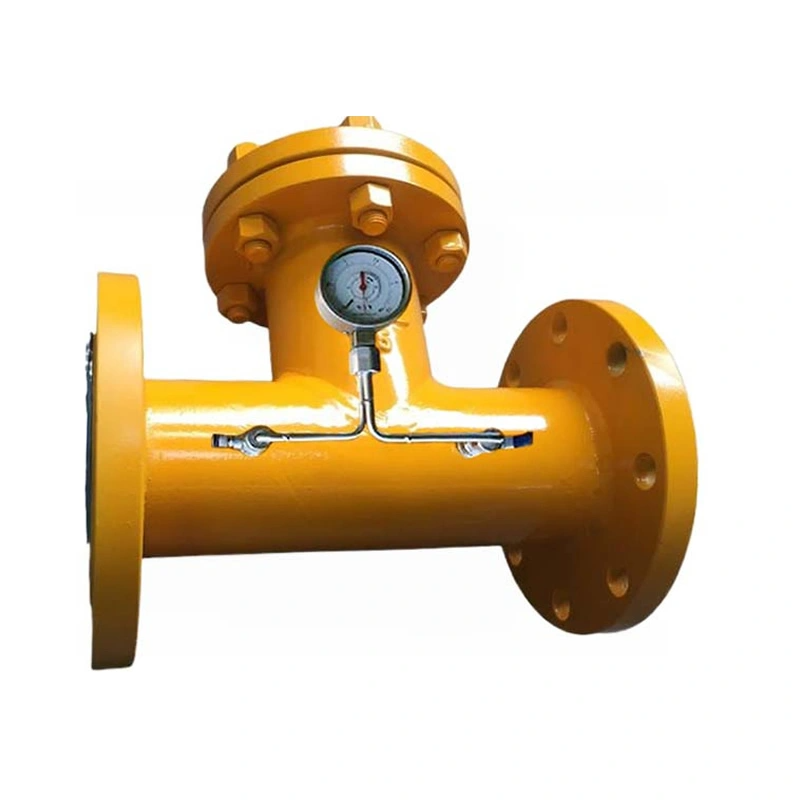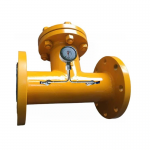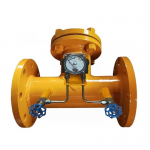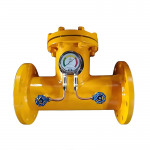Specification
I. Product Overview
II. Key Attribute Parameters
- Size Range: Nominal diameter (DN) covers DN15 to DN1000, adapting to both small-caliber precision pipelines and large-scale industrial main pipelines.
- Pressure Class: 150lb to 900lb, with maximum inlet pressure varying by model—15kgf/cm² for low-pressure grades and 30kgf/cm² for high-pressure grades, meeting medium and high-pressure system requirements.
- Applicable Media & Temperature: Suitable for water, oil, steam, natural gas, liquefied petroleum gas, and artificial gas. Operating temperature ranges from 220℃ to 350℃, compatible with medium to high-temperature working conditions.
- Connection Mode: RF flanged ends, ensuring tight alignment with pipeline flanges to minimize leakage risks, compliant with industrial flange connection standards.
- Material Selection:
- Body & Cover: Cast iron, WCB (carbon steel), SS304, or SS316 (stainless steel). SS304/SS316 offers enhanced corrosion resistance for acidic/alkaline or high-purity media.
- Filter Screen: 304 stainless steel porous sieve, featuring high strength and corrosion resistance, not easily deformed under fluid impact.
- Sealing Gasket: Asbestos sheet, ensuring reliable sealing under high temperature and pressure.
- Testing Standards: Complies with CE, SGS, and GMP certifications. Hydrostatic test pressure reaches 15kgf/cm² for low-pressure models and 30kgf/cm² for high-pressure models, verifying pressure resistance and sealing performance.
III. Feature Description
- Integrated Pressure Monitoring: Equipped with a differential pressure gauge and needle valve, real-time monitoring of pressure differences across the filter screen. When impurities accumulate and block the screen, the pressure difference increases, prompting timely cleaning—avoiding blind maintenance and reducing operational risks.
- Efficient Filtration Design: Adopts a full filtration area (larger than the pipeline cross-section), ensuring sufficient contact between fluid and the screen. This design improves impurity interception efficiency while minimizing pressure loss, reducing energy consumption of the pipeline system.
- Easy Maintenance: The top cover features a quick-open structure; removing the cover allows easy access to the basket-type filter screen (with a lifting handle). Impurities trapped in the screen can be removed directly, simplifying cleaning without disassembling the entire pipeline.
- Versatile Material Options: Cast or fabricated manufacturing (cast for complex structures, fabricated for large-caliber models) combined with diverse material choices (Wpb for cost-effectiveness, SS304/SS316 for corrosion resistance) allows adaptation to various media and working conditions.
Product Overview
IV. Manufacturing Process
- Casting Process (for complex structures): Molten metal (cast iron, WCB, or stainless steel) is poured into precision molds, forming the body and cover. After cooling, rough machining removes excess material, followed by fine machining to ensure dimensional accuracy of flanges and sealing surfaces.
- Fabrication Process (for large-caliber models): Carbon steel or stainless steel plates/pipes are cut to standard sizes, then welded into the body and cover via precision welding (TIG or MIG welding) to ensure structural strength. Welds are polished to smoothness, reducing fluid resistance.
- Component Assembly: The 304 stainless steel screen is woven or punched into a basket shape, with a lifting handle welded. The differential pressure gauge, needle valve, and drain plug are installed, followed by sealing with asbestos gaskets.
- Quality Inspection: Each unit undergoes hydrostatic testing (15kgf/cm² or 30kgf/cm²) to check for leaks. The differential pressure gauge is calibrated to ensure accurate pressure monitoring. Final inspections verify compliance with CE, SGS, and GMP standards.
Valve Details
V. Product Advantages
- Proactive Maintenance: The differential pressure gauge enables predictive maintenance, avoiding unexpected shutdowns caused by screen blockages—reducing unplanned downtime by over 40% compared to strainers without pressure monitoring.
- High Filtration Efficiency: The full filtration area and 304 stainless steel screen intercept over 95% of particles larger than the screen aperture, effectively protecting downstream precision equipment (e.g., compressors, flow meters) and extending their service life by 30-50%.
- Strong Adaptability: With material options from Wpb (for general fluids) to SS316 (for corrosive media), and a temperature range of 220-350℃, it adapts to diverse scenarios—from municipal water supply to petrochemical high-temperature steam pipelines.
- Energy & Cost Savings: Low pressure loss (≤5% of system pressure) reduces pump load, saving 3-8% in energy consumption. The quick-open cover and reusable screen lower maintenance costs by 20-30% annually.
Application
VI. Product Applications
- Gas Transmission & Distribution: In natural gas, liquefied petroleum gas, and artificial gas pipelines, it removes rust, dust, and solid particles, protecting pressure regulators, flow meters, and compressors—ensuring safe and efficient gas supply.
- Petrochemical Industry: Used in oil, chemical, and refinery pipelines to filter catalyst residues, coke particles, and impurities in crude oil/heavy oil, preventing wear on pumps, valves, and heat exchangers.
- Power Sector: In thermal power plant steam pipelines and boiler feed water systems, it intercepts scale and metal debris, maintaining the efficiency of turbines and heat exchangers.
- Municipal & General Industry: Suitable for urban heating networks (filtering pipeline corrosion products) and factory hydraulic systems (removing impurities in hydraulic oil), ensuring stable operation of valves and meters.
RELATED
-

PN16 Thermal Insulation Jacketed Ball Valve Steam Stainless Steel Flange Ball Valve
TIANYU High-Quality Thermal Insulation Jacketed Ball Valve for High-Viscosity, High-Temperature Media Control I. Product Overview TIANYU thermal insul…
BALL VALVE 09/13/2025 -

API/CE/ASME Compliant Stainless Steel CF8 Flanged Soft Seal Worm Gear Floating Ball Valve
Specification API/CE/ASME Compliant Stainless Steel CF8 Flanged Soft Seal Ball Valve with Worm Gear Operation for Global Industrial Flow Control I. Pr…
BALL VALVE 09/12/2025 -

4inch Stainless Steel Flanged Low Pressure Knife Gate Valve Driven by Electric Actuator
Stainless Steel Flanged Knife Gate Valve with Electric Actuator for Slurry, Wastewater, and Industrial Solid-Laden Media Control I. Product Overview T…
GATE VALVE 09/12/2025 -

DN50 Ductile Iron Metal-Seated Flanged Connection Telescopic Soft Seal Mechanical Gate Valve
I. Product Overview TIANYU DN50 ductile iron metal-seated flanged connection telescopic soft seal mechanical gate valve is a precision-engineered indu…
GATE VALVE 09/11/2025 -

High Quality PN16/PN25 Electric & Manual Butterfly Valve for Waterworks High Temperature Resistance
Product Overview TIANYU High-Temperature Butterfly Valve: Efficient Fluid Control Solution for PN16/PN25 Working Conditions I. Product Technical Overv…
BUTTERFLY VALVE 09/09/2025 -

DN400 PN16 WCB Bidirectional Pressure-Bearing Triple Eccentric Metal Multi-Layer Hard Seal Wafer Butterfly Valve
Specification TIANYU DN400 PN16 WCB Bidirectional Pressure-Bearing Triple Eccentric Metal Multi-Layer Hard Seal Wafer Butterfly Valve for Industrial M…
BUTTERFLY VALVE 09/09/2025





